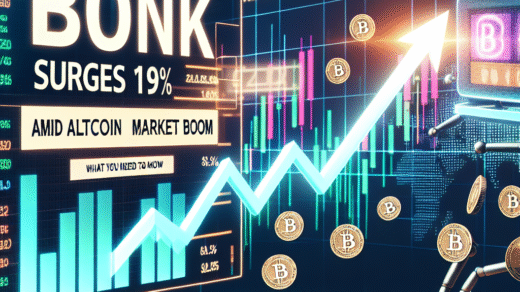Good Morning, Asia! Welcome to your daily summary of the most significant market movements and insights during U.S. hours. In today’s edition of the Asia Morning Briefing, we examine the stark contrast in investor sentiment between the U.S. and Hong Kong regarding Bitcoin (BTC) ETFs and other digital asset products.
U.S. Bitcoin ETF Inflows Outshine Hong Kong
According to data from CoinShares, the enthusiasm for digital asset products in the U.S. is skyrocketing, with inflows reaching an impressive $4.36 billion last week. This figure accounts for nearly the entire global inflow total of $4.39 billion, revealing a robust appetite for Bitcoin ETFs among American investors.
In stark contrast, Hong Kong’s cryptocurrency ETFs attracted a meager $14.1 million (USD) in inflows during the same period. This disparity is surprising, especially given the overall strong demand for exchange-traded products in Hong Kong. Recent statistics from Hong Kong Exchanges and Clearing show that from July 14 to 18, the region’s ETFs saw net inflows of approximately $880 million (USD). However, only 1.6% of these inflows were directed toward crypto assets.
Understanding the Market Dynamics
In the U.S., despite equity ETFs witnessing net outflows of $11.75 billion and bond funds attracting $5.55 billion, cryptocurrency funds have shown remarkable resilience, drawing in capital at a record pace. This trend indicates that American investors are increasingly viewing cryptocurrency as a distinct and essential asset class for their portfolios.
On the other hand, investors in Hong Kong seem to regard cryptocurrency as a niche asset rather than a mainstream investment. Nonetheless, potential changes in regulatory frameworks might shift this perception.
Potential Regulatory Changes in Hong Kong
At the Consensus Hong Kong event held in February, Yifan He, CEO of Red Date Technology, proposed a new regulatory approach that could allow mainland Chinese investors to gain exposure to cryptocurrency without violating the country’s existing crypto ban. He suggested utilizing the Qualified Domestic Institutional Investor (QDII) program, which currently permits select mainland investors to invest in U.S.-listed ETFs using RMB.
He argued that a similar framework could be adapted for Hong Kong’s spot Bitcoin and Ether ETFs. In essence, mainland investors would not directly hold cryptocurrency but would gain exposure through licensed intermediaries, similar to how they trade Hong Kong or overseas equities. “If they have a system for you to buy and sell in RMB, but never move money outside China, then it’s just another regulated investment product,” He remarked.
While capital controls remain a significant barrier, this proposal indicates a shift in regulatory tone from Beijing. “I see some signal from financial regulators,” He noted, suggesting that officials are starting to engage with the concept of Bitcoin and digital assets more seriously.
The Future of Crypto ETFs in Hong Kong
Although these changes do not equate to an outright lifting of the crypto ban in China, they could signify a movement towards integrating cryptocurrency within a regulated framework. Such a development would likely boost participation in Hong Kong’s crypto ETFs, which have struggled to gain traction despite the region’s strong infrastructure and regulatory clarity.
Current Market Overview
As we delve deeper into the current cryptocurrency landscape, Bitcoin (BTC) is trading above $117,000, maintaining a stable range. Meanwhile, Ethereum (ETH) has surged close to $3,800, reflecting a 13% increase year-to-date, signaling a potential turnaround after several months of underperformance.
In other markets, gold has risen by 1.2% to $3,391.90, supported by a weaker dollar and increasing expectations of lower interest rates. Japanese stocks have also shown positive movement, with the Nikkei 225 up 1.12% to 40,254.18 as investors reacted to the ruling party’s loss of its upper house majority in recent elections. In the U.S., stocks closed mixed on Monday, although the Nasdaq and S&P 500 reached fresh record highs.
Insights from Around the Cryptocurrency Market
In related news, Robinhood’s CEO has acknowledged the controversy surrounding OpenAI’s crypto stock and is committed to doubling down on their digital asset initiatives (Decrypt). Additionally, Pudgy Penguins’ CEO predicts a resurgence in NFT mania and a comeback for crypto gaming (Blockworks). Furthermore, BitGo has filed to go public as the crypto market surges past $4 trillion (CoinDesk).
Final Thoughts
The contrasting dynamics of the U.S. and Hong Kong cryptocurrency markets underscore the varying levels of acceptance and enthusiasm for digital assets in different regions. While the U.S. continues to lead in terms of Bitcoin ETF inflows, Hong Kong’s potential regulatory shifts could change the narrative in the coming years. Investors and stakeholders will need to stay vigilant as the landscape evolves, particularly if mainland China begins to embrace cryptocurrency in a regulated manner.
For those interested in entering the world of cryptocurrency, whether through Bitcoin or other altcoins, tools and resources are available to help navigate the market effectively. If you’re looking to dive in, consider reading our guides on How to Buy Bitcoin, How to Buy Ethereum, or explore platforms like Kraken and Binance.
Meta Description:
“Discover the latest crypto market trends in Asia as U.S. Bitcoin ETF inflows surge while Hong Kong investors favor stocks. Explore potential regulatory changes and the future of crypto ETFs in Hong Kong.”







